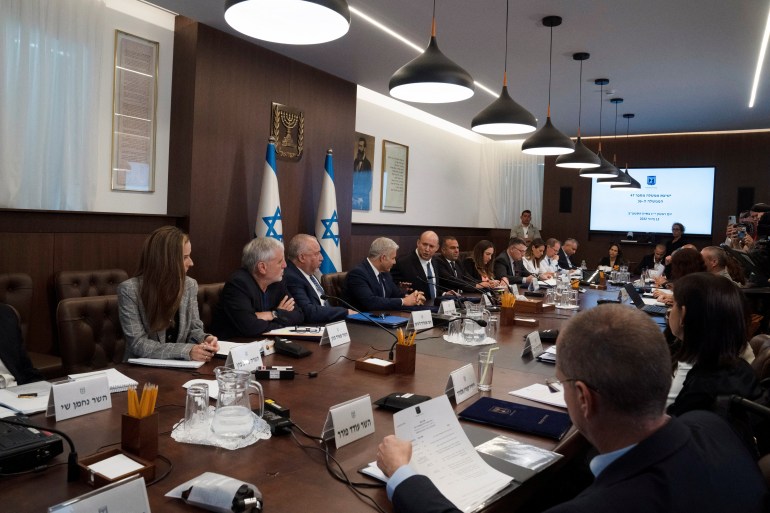Head of the Political Bureau of the Islamic Resistance Movement (Hamas) Ismail Haniyeh called - on Sunday - to build a future Palestinian strategic vision. In return, Israeli Prime Minister Naftali Bennett said that his government has changed its policy and strategy in dealing with Hamas.
Haniyeh stressed - at the Palestinian Sovereignty Conference organized by the Ummah University in Gaza - that the resistance in Gaza and the West Bank represents the steel dome to protect prisoners, Jerusalem, the West Bank and the Palestinians within the Green Line, as he put it.
The head of the Hamas political bureau called for building strategic alliances to reject normalization, support the Palestinian people and liberate Al-Aqsa.
Haniyeh said that there is a need to take advantage of the changes taking place in the world, or the Arab and Islamic region, to build this vision and manage the conflict with the enemy.
Haniyeh reiterated his movement's readiness to achieve unity and overcome the state of internal division, stressing the need to build a Palestinian national front that protects the constants and sponsors the resistance, and constitutes a reference on the path to rebuilding the PLO if general unity falters.
The Palestinian arena has been suffering from an administrative and political division since 2007, as Hamas controls the Gaza Strip, while the Palestinian government formed by the Fatah movement, led by President Abbas, administers the West Bank.
Years ago, many meetings and meetings were held between the Palestinian factions in order to end the division and restore national unity, without resulting in serious practical steps.
Naftali Bennett said his government is committed to providing calm to the residents of the Gaza border settlements (Reuters)
Bennett's strategy
On the other hand, Israeli Prime Minister Naftali Bennett said that since the formation of his government, its policy toward Hamas has changed, among other things, from a policy of containing rocket fire at Israelis to a zero-tolerance policy.
In his speech during his weekly cabinet meeting on Sunday, Bennett indicated that the army responded to the rocket launch towards Ashkelon, even though the Iron Dome had brought it down, and workshops for the production of weapons and a group of Hamas targets were destroyed, adding that unlike the past days, they are no longer looking for excuses for "terrorists" to attack. description limit.
Bennett considered that the last year was the quietest year for the residents of the Gaza envelope, stressing his commitment to maintaining this calm for a long time and preventing any new escalation.
Bennett added that his government will act vigorously against any attempt to undermine the calm, and the responses to any such attempts will be strong and painful, as he put it.
Bennett's statements came a day after the Israeli army launched air strikes on sites in the Gaza Strip affiliated with Hamas in the Strip in response to the firing of a Palestinian rocket from Gaza towards Ashkelon.
Later on Saturday, the Israeli Ministry of Defense decided to "freeze" the increase in the Gaza Strip's share of work permits within the Jewish state, which it had announced on Thursday.
Israel has imposed a tight land, sea and air blockade on Gaza since the Hamas movement took control in 2007 of the impoverished enclave, where about half of the population is unemployed, most of them young people.
Palestinian assassination
In the West Bank, the Israeli occupation forces killed a Palestinian youth named Nabil Ghanem near Qalqilya (north).
The Palestinian Ministry of Health said that Ghanem is a resident of the city of Nablus, and he fell near the Jaljulia gate located in the wall separating the city of Qalqilya and inside the Green Line.
The official Palestinian news agency (Wafa) stated that Ghanem is 53 years old, and he is one of the workers who travel daily from the West Bank to work inside Israel.
The Israeli army claimed that Ghanem approached the security fence and that several warning shots were fired at him before he was directly shot.
Since the beginning of this year, the Israeli occupation forces have killed at least 45 Palestinians, including activists and civilians, including Al-Jazeera correspondent Shireen Abu Aqleh, while covering an Israeli military operation in Jenin camp, the stronghold of Palestinian armed factions.

